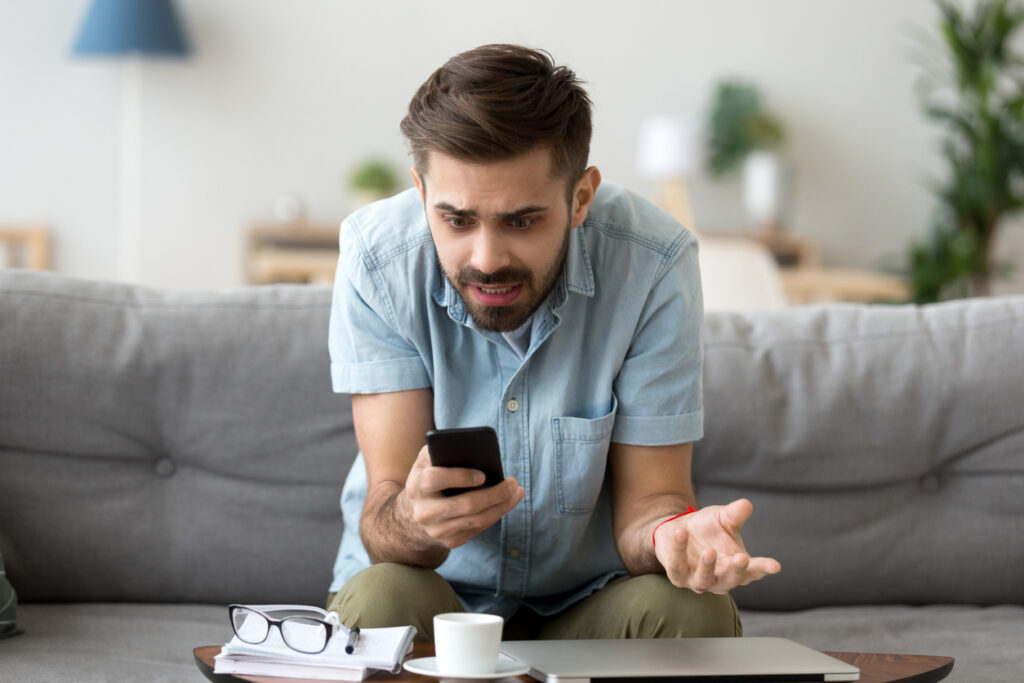How old were you when you got your first phone? I was about 13 years old, it was Christmas, and it was all I had asked for that year. It was the new thing, however what I got wasn’t some fancy smart phone , it was an old school, simple, flip phone.
As years passed and technology advanced, the presents under the tree did as well. Next I graduated to a Blackberry to eventually the iPhone. Does anyone remember the original iPod created by Apple? These designs led to the beginning of a new era of innovation. Since the creation of the first iPhone, we have seen significant advancements in apple products as well as in other smartphones, computers and in technology, as a whole.
Keep reading for our thoughts on being connected and disconnected in our fast paced world!
Studies show that as of 2019, 96 percent of Americans have a phone and that 84 percent of them are smartphones. Smartphones allow us to have access to almost all of our digitized platforms (professional and nonprofessional) on a small compact mobile device. Some kids will never understand the flip phone/blackberry days and they probably never will. In an article titled “5 Reasons Why all Organizations Should Embrace BYOD” written by Ruby Spencer, it was found that 87 percent of millennials said their smartphone never leaves their side.
In the US we have become acquainted with and almost rely on our smartphones as a source of news, direction, communication, and to just in general perform our daily lives. Being disconnected in the ‘on the go’ lifestyle that we are used to can be detrimental to our daily activities in more ways than one. Perhaps we have become so acquainted with relying on our smartphones that we can’t live in a world without them anymore?
Speaking as a millennial who only vaguely remembers having a blackberry 10 years ago, I personally have had quite a few run-ins with being disconnected from our constant line of artificial connection. Why you ask; because you’re speaking to the master of breaking iPhones. While I don’t say this proudly, I’ve had roughly 15 iPhones in the past 8 years. Laugh at me all you want but If you really counted them up, I bet I’ve set a record. Currently my device is basically unusable; more than half of the screen is black, majority of my texts I can’t read, the ones I can, my responses come out in gibberish, I can’t see who’s calling, it’s a total mess.
What good is it to see that someone is calling or texting if you can’t even see who it is? If you ask me, it’s better than nothing, I can still talk to Siri and ask her to make calls or send texts, a luxury I have because of where I live and the innovation of these devices. Although they are innovative and offer a totally connected lifestyle, they are also expensive and very fragile. Once upon a time when I was a kid, my dad dropped his blackberry off our 30th floor apartment balcony while on the phone. The Blackberry didn’t even drop the call, meanwhile you drop your iPhone out of your hands one to many times and you might not have a phone at all.
Since the United States is far more advanced in terms of digitalization it is important that we remember the world as a whole. There was once a time when no one had cell phones, let alone ones that you could literally talk to. A study done in 2000 showed that only 4 percent of people in middle to low income countries had access to a phone. That being said 15 years later in sub-Saharan Africa 76 percent of people had a cellular subscription: this is more than the amount of people that had access to clean drinking water in the same area. Globally as of 2020, according to Bankmycell calculations, 61.53 percent of the world has access to a phone, 44.98 percent of those are smartphones. Fifty percent is a big chunk, way bigger than the 15 percent of people who don’t have access to a smartphone in the United States.
Over half of the world doesn’t know what it’s like to be able to easily gps their way to a grocery store, or order meals from the seat of their couch all via their mobile device. Imagine only being able to communicate via phone call or simple text, not being able to assess news from different sources like twitter or different apps. To those of us riding this wave, remember that we are privileged. At the same time we also need to be careful to not forget that there is a world outside of our devices, and that as we spend more time on these devices and rely on them, the more we lose that human to human connection. Our reliance on these devices may be convenient, but could also become hazardous. Regardless of the cause, a monument disruption to satellites or to power grids could be detrimental to our economy, our government, and to our current way of life.Digitalization is the newest and one of the most productive ways to communicate, learn and network for businesses, individuals and organizations; even our planet benefits. However, every pro has its cons, and as we continue to digitize it is important to make sure we are utilizing it for the right reasons as well as making it accessible to everyone, so groups aren’t left in the dark. Do we control our smartphones, or do they control us? Leave us a comment and tell us what YOU think!

